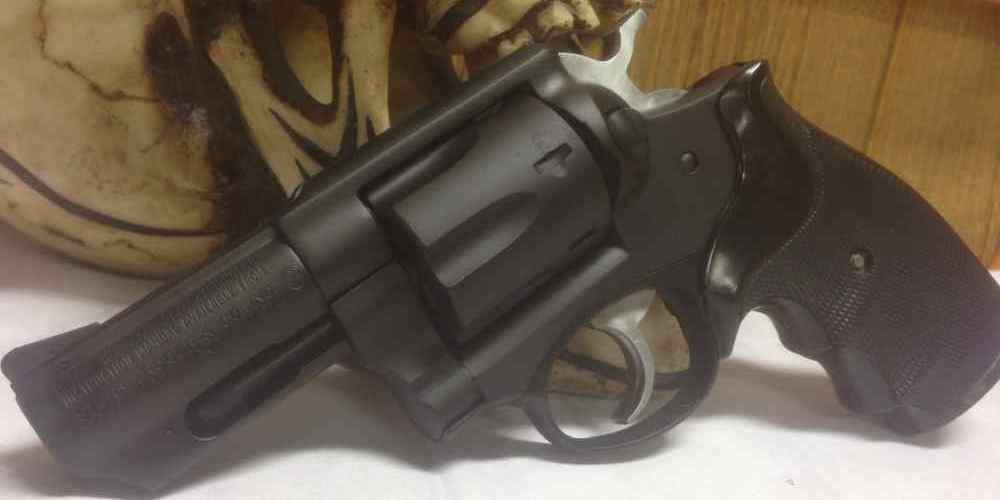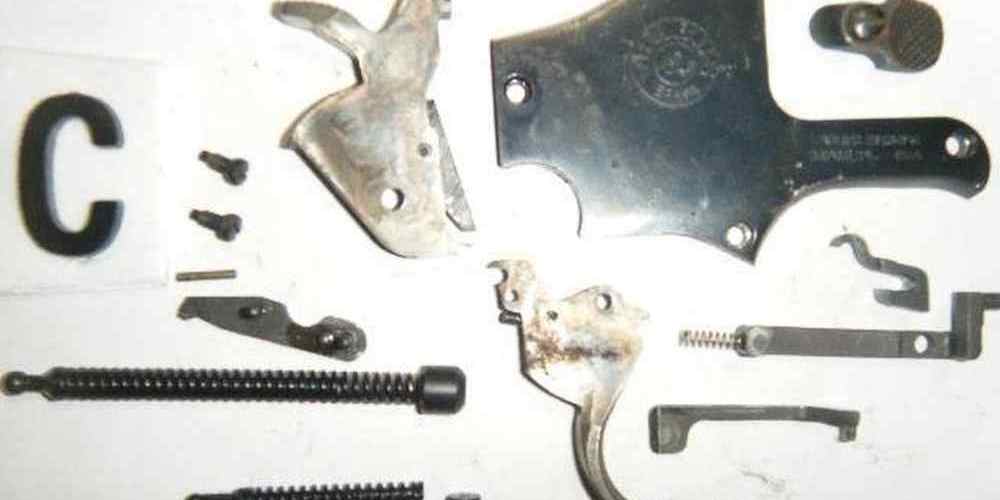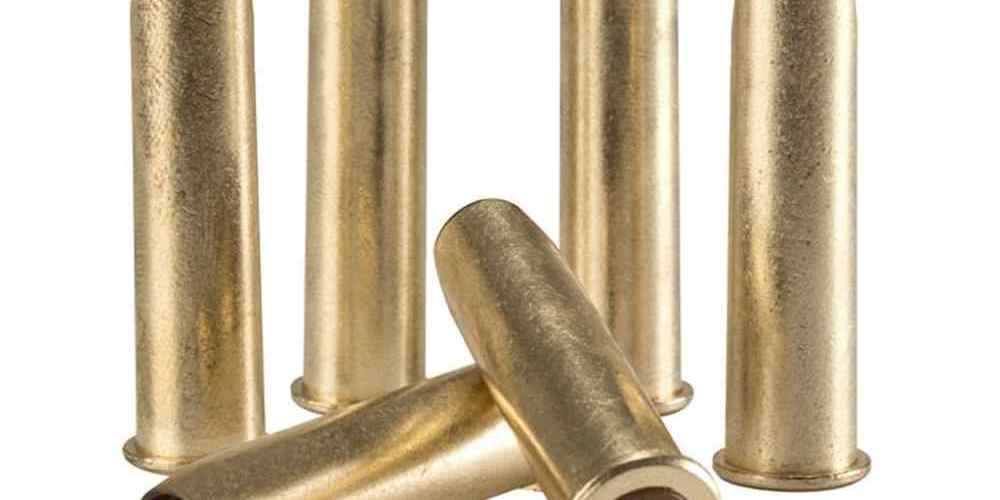“Restoring beauty, one rusted revolver at a time.”
Identifying Different Types of Corrosion on Your Revolver
Corrosion is a common issue that plagues many firearms, including revolvers. Over time, exposure to moisture, humidity, and other environmental factors can cause metal surfaces to deteriorate and rust. If left unchecked, corrosion can compromise the functionality and appearance of your revolver. In this article, we will discuss the different types of corrosion that can affect your revolver and how to identify them. One of the most common types of corrosion found on revolvers is red rust, also known as iron oxide. Red rust forms when iron or steel is exposed to oxygen and moisture, causing the metal to oxidize and deteriorate. Red rust is typically easy to identify, as it appears as a reddish-brown discoloration on the surface of the metal. If left untreated, red rust can eat away at the metal and weaken its structural integrity. Another type of corrosion that can affect revolvers is pitting corrosion. Pitting corrosion occurs when small pits or holes form on the surface of the metal, usually as a result of exposure to corrosive substances or environments. Pitting corrosion can be more difficult to detect than red rust, as the pits may be small and not immediately visible. However, over time, pitting corrosion can weaken the metal and lead to structural damage. Galvanic corrosion is another type of corrosion that can affect revolvers. Galvanic corrosion occurs when two different metals come into contact with each other in the presence of an electrolyte, such as water or salt. The more reactive metal will corrode faster than the less reactive metal, leading to deterioration of the metal surfaces. Galvanic corrosion can be identified by the presence of white or grayish deposits on the metal surfaces where the two metals are in contact. In addition to these common types of corrosion, revolvers can also be affected by crevice corrosion and stress corrosion cracking. Crevice corrosion occurs in tight spaces or crevices where moisture and oxygen are trapped, leading to localized corrosion. Stress corrosion cracking occurs when a metal is under tensile stress and exposed to a corrosive environment, causing cracks to form on the surface of the metal. To identify corrosion on your revolver, it is important to regularly inspect the metal surfaces for any signs of discoloration, pitting, or deposits. Pay close attention to areas where moisture may accumulate, such as around the barrel, cylinder, and trigger guard. Use a magnifying glass or a flashlight to inspect hard-to-reach areas and look for any signs of corrosion. If you discover any corrosion on your revolver, it is important to take immediate action to prevent further damage. Start by cleaning the affected areas with a mild solvent or gun cleaner to remove any dirt, debris, or rust. Use a soft brush or cloth to gently scrub the surface of the metal and remove any corrosion. If the corrosion is extensive, you may need to use a rust remover or abrasive pad to restore the metal surface. In conclusion, identifying different types of corrosion on your revolver is essential for maintaining its functionality and appearance. By regularly inspecting the metal surfaces and taking prompt action to address any corrosion, you can prevent further damage and extend the life of your revolver. Remember to store your revolver in a dry, cool environment and regularly clean and maintain it to prevent corrosion from occurring.
Preventing Corrosion on Your Revolver with Proper Maintenance
Corrosion is a common issue that plagues many gun owners, especially those who own revolvers. Revolvers are particularly susceptible to corrosion due to their exposed metal surfaces and intricate mechanisms. However, with proper maintenance and care, you can prevent corrosion from damaging your prized firearm. One of the most important steps in preventing corrosion on your revolver is regular cleaning. After each use, make sure to thoroughly clean and dry your revolver to remove any dirt, debris, or moisture that may have accumulated. Use a cleaning kit specifically designed for firearms to ensure that you are using the right tools and products for the job. When cleaning your revolver, pay special attention to the barrel, cylinder, and other metal components. Use a solvent to remove any fouling or residue, and then apply a light coat of gun oil to protect the metal from moisture and rust. Be sure to follow the manufacturer’s instructions for cleaning and maintenance to ensure that you are properly caring for your revolver. In addition to regular cleaning, storing your revolver properly is essential for preventing corrosion. When not in use, store your revolver in a cool, dry place away from moisture and humidity. Consider investing in a gun safe or case to protect your revolver from the elements and potential damage. If you live in a humid or coastal area, you may want to consider using a dehumidifier or desiccant to help control the moisture levels in your storage area. This will help prevent rust and corrosion from forming on your revolver and other firearms. Another important aspect of preventing corrosion on your revolver is inspecting it regularly for any signs of damage or wear. Check for any rust, pitting, or discoloration on the metal surfaces, and address any issues immediately. If you notice any corrosion, use a rust remover or abrasive pad to gently remove the rust and then apply a protective coating to prevent further damage. It is also important to check the moving parts and mechanisms of your revolver for any signs of wear or malfunction. Regularly lubricate these components with gun oil to ensure smooth operation and prevent corrosion from forming on the internal surfaces. By following these tips and taking proper care of your revolver, you can prevent corrosion and keep your firearm in top condition for years to come. Remember that prevention is key when it comes to dealing with corrosion, so make sure to clean, store, and inspect your revolver regularly to keep it in pristine condition. In conclusion, dealing with corrosion on your revolver requires diligence and proper maintenance. By following these tips and taking the time to care for your firearm, you can prevent corrosion from damaging your revolver and ensure that it remains in excellent working condition. Remember, a little effort now can save you a lot of time and money in the long run.
Restoring a Corroded Revolver to Its Former Glory
Corrosion is a common issue that plagues many firearms, including revolvers. Whether your revolver has been exposed to moisture, saltwater, or simply neglected over time, dealing with corrosion is essential to ensure the longevity and performance of your firearm. In this article, we will discuss how to revive your weathered revolver and restore it to its former glory. The first step in dealing with corrosion on your revolver is to thoroughly clean the affected areas. Use a solvent or gun cleaner to remove any dirt, grime, and rust that may have accumulated on the surface of the metal. Be sure to pay special attention to the areas where corrosion is most prevalent, such as around the barrel, cylinder, and trigger. Once the revolver is clean, it is important to assess the extent of the corrosion damage. Minor surface rust can often be removed with a light abrasive, such as steel wool or a brass brush. For more severe corrosion, you may need to use a stronger abrasive, such as sandpaper or a wire brush. Be careful not to remove too much material, as this can affect the functionality and appearance of your revolver. After removing the corrosion, it is important to protect the metal from future damage. Apply a thin coat of gun oil or lubricant to the surface of the metal to prevent rust and corrosion from forming again. Be sure to follow the manufacturer’s instructions for proper application and storage of the lubricant. In addition to cleaning and protecting the metal, it is also important to inspect and maintain other components of your revolver. Check the grips, sights, and action for any signs of wear or damage. Replace any worn or damaged parts to ensure the safe and reliable operation of your firearm. If you are unsure about how to properly clean and maintain your revolver, consider seeking the help of a professional gunsmith. A gunsmith can provide expert advice and services to help you restore your weathered revolver to its former glory. In conclusion, dealing with corrosion on your revolver is essential to ensure its longevity and performance. By following these steps and taking proper care of your firearm, you can revive your weathered revolver and enjoy many more years of shooting enjoyment. Remember to clean, assess, protect, and maintain your revolver regularly to keep it in top condition. With a little time and effort, you can restore your corroded revolver to its former glory and continue to enjoy shooting for years to come.
Choosing the Right Cleaning Products for Corrosion Removal
Corrosion is a common issue that plagues many gun owners, especially those who own revolvers. Over time, exposure to moisture and other environmental factors can cause metal surfaces to rust and deteriorate. If left unchecked, corrosion can compromise the functionality and appearance of your revolver. However, with the right cleaning products and techniques, you can effectively remove corrosion and restore your revolver to its former glory. When it comes to choosing the right cleaning products for corrosion removal, it’s important to consider the type of metal your revolver is made of. Different metals require different cleaning solutions to effectively remove corrosion without causing damage. For revolvers made of stainless steel, a mild abrasive cleaner or metal polish can be used to gently scrub away surface rust. Be sure to follow the manufacturer’s instructions and test the product on a small, inconspicuous area before applying it to the entire revolver. For revolvers made of blued steel, a gentler approach is needed to avoid damaging the finish. A non-abrasive cleaner specifically designed for blued steel can be used to remove corrosion without stripping away the protective coating. It’s important to use a soft cloth or brush to gently scrub the affected areas, being careful not to scratch the finish. After cleaning, be sure to apply a thin coat of gun oil to protect the metal from future corrosion. In addition to choosing the right cleaning products, it’s also important to consider the condition of your revolver before attempting to remove corrosion. If the corrosion is extensive or has caused pitting in the metal, it may be necessary to seek professional help to restore your revolver. In some cases, the damage may be too severe to repair, and you may need to consider replacing the affected parts. When selecting cleaning products for corrosion removal, it’s important to choose products that are specifically designed for firearms. Using household cleaners or abrasive materials can cause damage to your revolver and may not effectively remove corrosion. Look for products that are formulated to dissolve rust and corrosion without harming the metal surface. In addition to choosing the right cleaning products, it’s also important to follow proper cleaning techniques to ensure the best results. Start by disassembling your revolver and removing any dirt or debris from the affected areas. Use a soft brush or cloth to gently scrub away surface rust, being careful not to scratch the metal. After cleaning, be sure to thoroughly dry the revolver to prevent further corrosion. In conclusion, dealing with corrosion on your revolver can be a daunting task, but with the right cleaning products and techniques, you can effectively remove rust and restore your revolver to its former glory. By choosing products that are specifically designed for firearms and following proper cleaning techniques, you can protect your revolver from future corrosion and ensure that it remains in top condition for years to come. Remember to always store your revolver in a dry, climate-controlled environment to prevent corrosion from occurring in the first place.
Tips for Storing Your Revolver to Prevent Future Corrosion
Corrosion is a common issue that plagues many gun owners, especially those who own revolvers. Whether you use your revolver for target shooting, hunting, or self-defense, proper maintenance is essential to keep it in top condition. In this article, we will discuss some tips for storing your revolver to prevent future corrosion and keep it in optimal working condition. One of the most important steps in preventing corrosion is to clean your revolver regularly. After each use, make sure to thoroughly clean and dry all parts of the gun, paying special attention to the barrel and chamber. Use a cleaning solvent and a bore brush to remove any residue or fouling that may have built up during use. Once the gun is clean, apply a light coat of gun oil to protect the metal from moisture and corrosion. When storing your revolver, it is important to keep it in a dry environment. Moisture is the enemy of metal, as it can cause rust and corrosion to develop quickly. Store your revolver in a gun safe or a secure cabinet that is free from humidity and moisture. If you live in a humid climate, consider using a dehumidifier in your gun storage area to help control moisture levels. Another important tip for preventing corrosion is to store your revolver in a gun case or a silicone-treated gun sock. These protective covers will help shield your gun from dust, dirt, and moisture, which can all contribute to corrosion over time. Make sure to check your gun case or sock regularly for any signs of moisture or damage, and replace them if necessary. In addition to proper cleaning and storage, it is also important to inspect your revolver regularly for any signs of corrosion. Check the metal surfaces for any rust spots or pitting, and address them immediately to prevent further damage. If you notice any corrosion on your revolver, use a brass brush or steel wool to gently remove the rust, then clean and oil the affected area to prevent it from spreading. One final tip for preventing corrosion is to avoid storing your revolver near any harsh chemicals or solvents. These substances can react with the metal of your gun and cause corrosion to develop quickly. Keep your revolver away from cleaning supplies, gasoline, and other chemicals that could potentially damage the metal surfaces. By following these tips for storing your revolver, you can help prevent future corrosion and keep your gun in top condition for years to come. Remember to clean your revolver regularly, store it in a dry environment, use protective covers, inspect for corrosion, and avoid harsh chemicals. With proper care and maintenance, your revolver will continue to perform reliably and look great for many shooting sessions to come.






